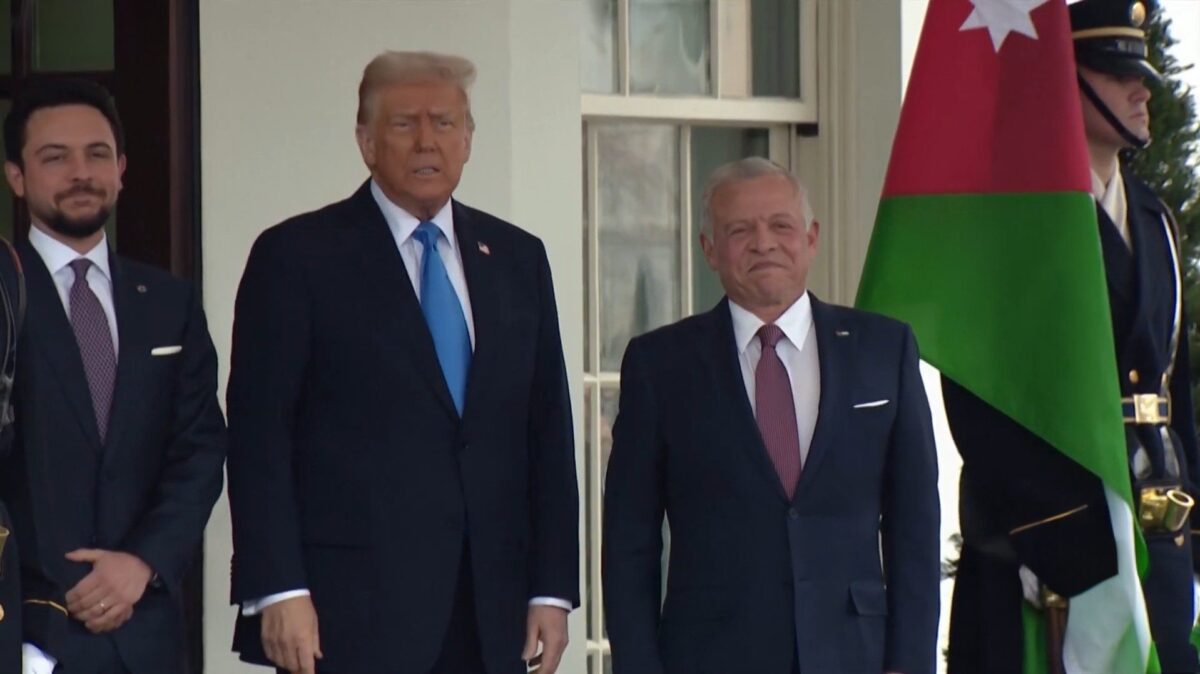President Trump has a knack for making the impossible look routine. The same media and political elites who scoffed at his every bold move are once again left scratching their heads as he shifts the unmovable in the Middle East. This time, it’s not just another peace deal or a renegotiated treaty—it’s the unthinkable: getting Arab nations like Jordan and Egypt to take in Palestinian refugees as part of a broader plan to stabilize Gaza. And believe it or not, it’s working.
King Abdullah of Jordan, a leader known for his diplomatic poise and ironclad stances, arrived at the White House recently, clearly expecting to hold his ground. But if you watched his face upon arrival, there was a flicker of something—resignation, perhaps? Reality setting in? Call it what you will, but it was the face of a man who realized he wasn’t going to leave that meeting without making concessions. And he didn’t.
https://twitter.com/DrEliDavid/status/1889390140163833890
President Trump’s plan isn’t just bold; it’s a strategic masterstroke. For decades, the so-called “Palestinian refugee crisis” has been less about humanitarian concern and more about being a convenient geopolitical pawn for anti-Israel factions. Arab nations have historically kept Palestinian refugees in limbo, weaponizing their plight to maintain perpetual conflict with Israel. But Trump doesn’t play by their rules—he rewrites them.
The pressure point? U.S. foreign aid. Jordan and Egypt receive billions annually from the U.S., and as much as their leaders might posture on the world stage, that aid is the lifeblood of their regimes. President Trump didn’t even have to make explicit threats. A subtle reminder of who holds the purse strings was enough to get King Abdullah and Egypt’s leaders to the table—not just talking, but actively engaging with Trump’s plan to resettle Palestinians within their borders.
Sure, it’s starting small—around 2,000 refugees. But that’s not the point. The point is that Trump managed to crack open a door that’s been sealed shut for decades. This is the first domino. If Palestinians find safety, stability, and opportunity outside Gaza, the emotional and political justification for ongoing hostility toward Israel starts to crumble. Without perpetual “victimhood” to exploit, terror factions lose their grip.
The left and the foreign policy establishment will spin this as unrealistic or unsustainable. They’ve been wrong before—Jerusalem embassy, Abraham Accords, crushing ISIS, anyone? Trump thrives on proving doubters wrong, especially when the stakes are global.
No, he won’t solve the Middle East overnight. But if anyone can make the impossible possible, it’s President Trump. Betting against him? History says that’s a losing hand.




Ah, soon Canada will be the 51st state, eh.